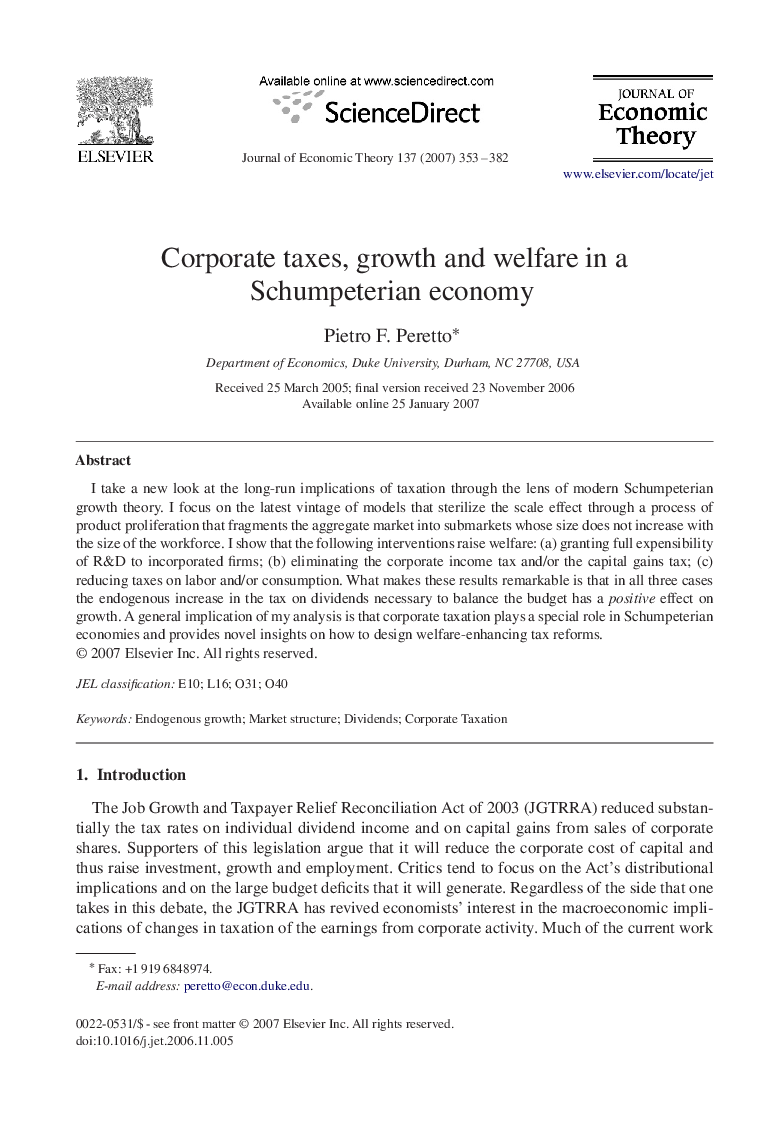| Article ID | Journal | Published Year | Pages | File Type |
|---|---|---|---|---|
| 957063 | Journal of Economic Theory | 2007 | 30 Pages |
I take a new look at the long-run implications of taxation through the lens of modern Schumpeterian growth theory. I focus on the latest vintage of models that sterilize the scale effect through a process of product proliferation that fragments the aggregate market into submarkets whose size does not increase with the size of the workforce. I show that the following interventions raise welfare: (a) granting full expensibility of R&D to incorporated firms; (b) eliminating the corporate income tax and/or the capital gains tax; (c) reducing taxes on labor and/or consumption. What makes these results remarkable is that in all three cases the endogenous increase in the tax on dividends necessary to balance the budget has a positive effect on growth. A general implication of my analysis is that corporate taxation plays a special role in Schumpeterian economies and provides novel insights on how to design welfare-enhancing tax reforms.
